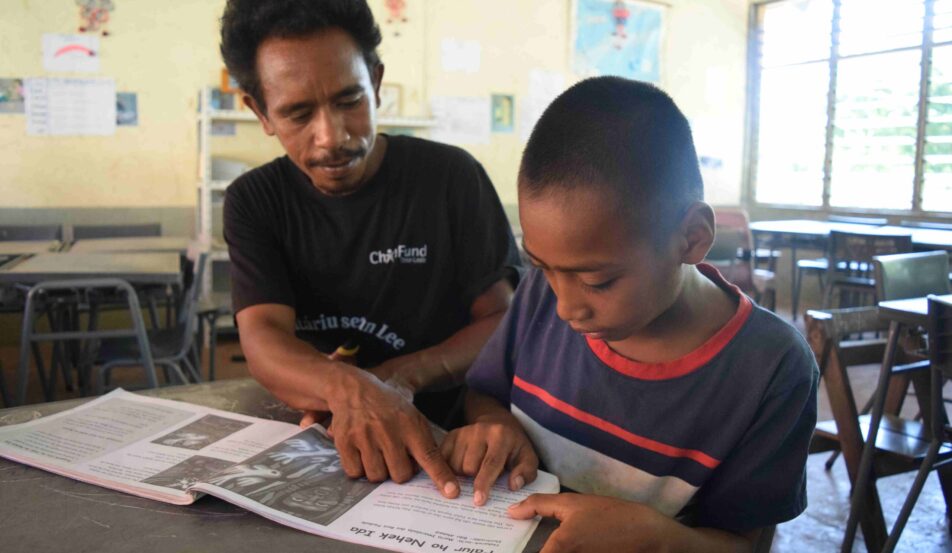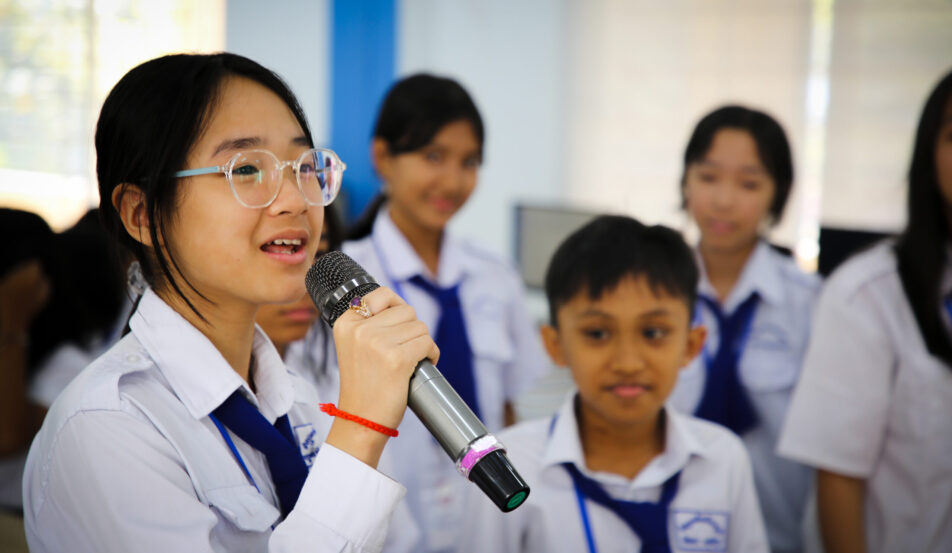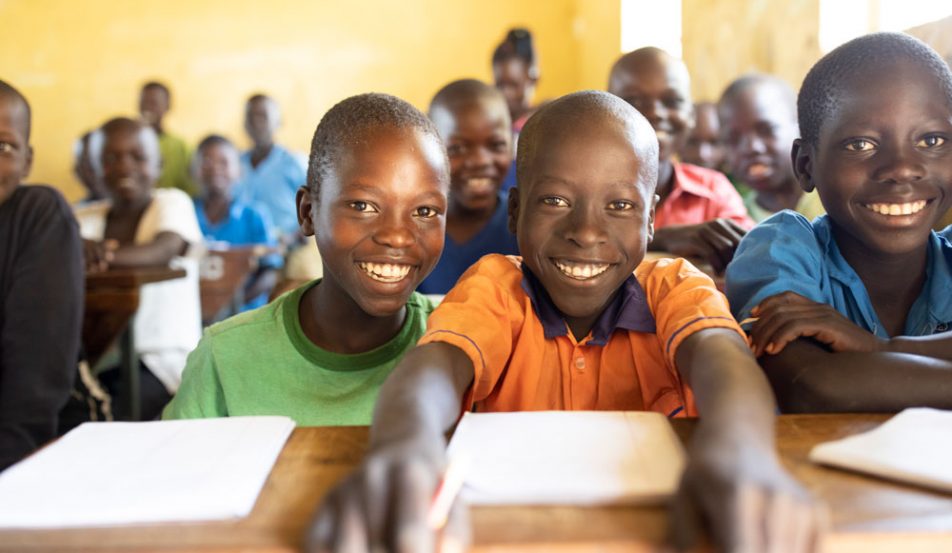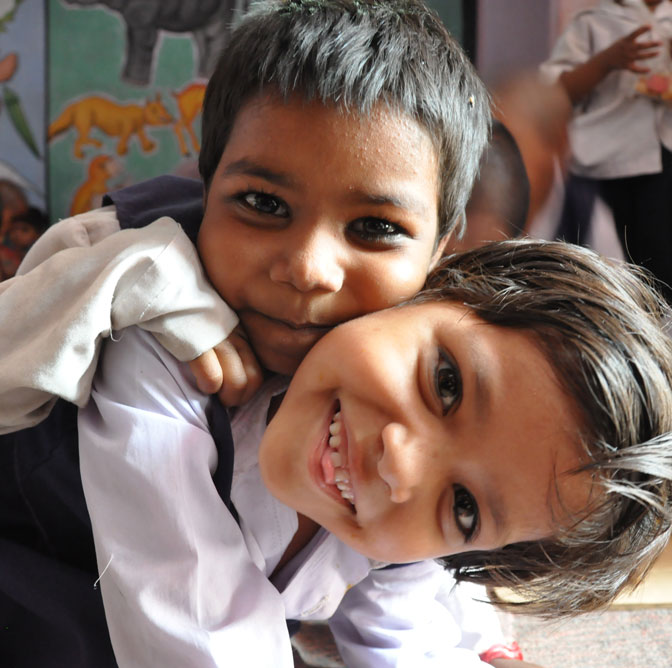Social and emotional learning: the key to healthy human development
The 26 March 2021 is Social and Emotional Learning (SEL) Day, with this year’s theme focusing on building bonds and reimagining community. We spoke to ChildFund’s Social and Emotional Learning advisor Matt Brodie to find out why SEL is integral to children’s development, particularly as the world emerges from the global COVID-19 pandemic.
What exactly is social and emotional learning?
Social and emotional learning (SEL) is fundamental to healthy human development. It influences how well people adapt to their environment and how much they achieve in their lives.
SEL is best thought of as a continual process where children and adults acquire and apply knowledge, skills, and attitudes across five core areas: self-awareness, self-management, social awareness, relationship skills and responsible decision-making.
This integration of intra- and interpersonal development strengthens how we:
- manage and communicate our emotions,
- feel and show empathy for others,
- establish and maintain healthy relationships,
- set and work towards goals,
- use a range of coping strategies,
- think critically about what influences our choices, and
- make responsible decisions.
In a 21st century world of rising complexity – including urbanisation, technological disruption, climate change, and the unfolding impacts of COVID-19, SEL is important for the wellbeing of all individuals, their communities, and society.
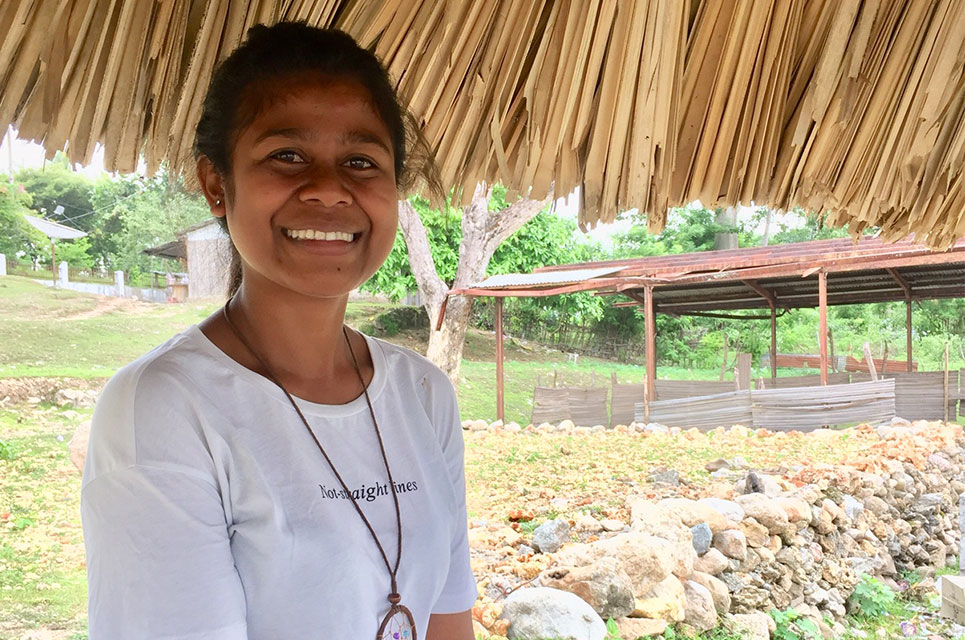
Why is SEL integral to educating children and young people?
Traditionally, education has been viewed as building academic knowledge and applying cognitive skills.
We know, however, that children do not learn in isolation. A more holistic view of child and youth development recognises that young people learn in both formal and informal settings, in collaboration with their teachers and peers, and with the support of their families.
Relationships and emotional processes affect how and what we learn. SEL benefits children and young people by equipping them with skills to positively navigate and manage these emotional processes and forge respectful relationships.
A wealth of research in education systems around the globe (including Joseph Durlak’s work) demonstrates that children and young people who receive SEL support have higher academic achievement and experience a higher level of mental wellbeing.
Are we seeing more SEL programs available in Australia?
Globally, national education systems, including Australia, increasingly recognise that alongside developing academic proficiency, children and young people need to be able to work well with others from diverse backgrounds in socially and emotionally appropriate ways, practise healthy behaviours, and behave responsibly and effectively.
For example, the Australian Curriculum contains a Personal and Social Capability framework for integrating SEL within school wellbeing policies and teaching and learning practices from Foundation level to Year 10.
Similarly, the Australian National Quality Framework for early childhood education includes a standard that assesses the extent to which children are supported to learn from and help each other, regulate their own behaviour and communicate effectively to resolve conflicts.
Do SEL programs have special benefits for children and young people in developing communities given the many difficulties they face?
SEL programs provide a range of benefits to the children and young people with whom we work. Our projects bring children and young people together to collaborate, express and have their views listened to, and to have influence in local and national decision-making processes.
In this way, children and young people can give voice to the difficulties they face, claim their rights, and meaningfully participate in decisions that affect their lives.
Alongside this, SEL programs address all forms of violence by fostering respectful relationships between girls and boys and young women and men, and promote peace building and non-violent conflict resolution strategies.
Many of ChildFund’s SEL programs also contain interventions that promote sexual and reproductive health, and online safety.
COVID-19 has caused massive disruption to the lives of children and young people. Do SEL programs have a role to play in reducing the impact on children and young people as communities emerge from the pandemic?
University of Melbourne Professor Helen Cahill points to SEL programs in post-conflict settings to demonstrate that these interventions can help reduce negative mental health effects in children and young people such as depression, anxiety and post-traumatic stress disorder.
While not a replacement for therapy, SEL programs can help children and young people develop key life skills to help deal with the ongoing stressors and challenges of everyday life, as well as those that escalate in response to the impacts on their families.
Organisations like ChildFund are closely assessing the impact of the pandemic on child and youth wellbeing. A global survey by ChildFund member Educo shows that children and young people recognised their lives were being fundamentally changed, but how they felt about this change fluctuated between uncertainty and optimism.
SEL programs that positively influence how children and young people view and adjust to these changes is thus crucial.
About Matt Brodie
Facing growing global complexity and 21st century challenges, young people require competencies that help them navigate this constant change. As ChildFund Australia’s Social and Emotional Learning Advisor, Matt provides technical advice on programs in the Asia-Pacific region that build the resilience and wellbeing of children and youth, engaging with communities and government bodies to promote youth participation and leadership. Matt is a trained secondary teacher with fifteen years of experience working in Australian and international schools in Europe and Asia, and has also coordinated curriculum development and facilitator training with youth-focused organisations that promote leadership and advocacy skills.































